Interview with Dr. Amy Brown
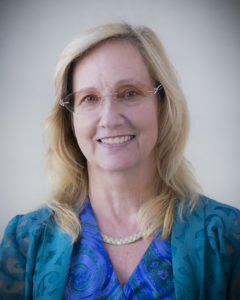
Amy Brown, PhD, RDN
Amy Brown, PhD, RDN, is a Professor in the John A. Burns School of Medicine at the University of Hawai’i at Mānoa. Her clinical and laboratory research is the area of Integrative Medicine and Medical Nutrition Therapy as it relates to diet, foods, and plant extracts that may hold therapeutic potential for disease. Dr. Brown has published in the field of diet and disease with regard to inflammatory bowel disease, psoriasis, dietary supplements, probiotics, autism, and the in vitro anti-proliferation of cancer cells by Pacific Basin plant substances from poi, ginger, and guava. She has authored over 44 scientific publications, along with “Understanding Food (6th Ed),” the number one college textbook in its field. Dr. Brown has also recognized the need for mindfulness in education and now teaches a mindfulness course for college students at the University of Hawai’i at Mānoa.
Parts of the interview have been edited for clarity and length.
What inspired you to develop a mindfulness course for the University of Hawai’i?
It was a confluence of events that melded into one path that gently guided me into teaching mindfulness to college students. About 15 years ago, I joined a small group meditating weekly in the beautiful hills of Honolulu, Hawai’i in a Buddhist temple led by a community volunteer with a deep, calming voice. Working at a university is not easy, and I had to deal with some pretty petty politics, and a part of me just gave up and gave it all to God-completely. At this point, I was alone in the Diamond Head theater waiting for the Christian service to begin, and to my amazement everything just melded together into this beautiful symphony of moving color. The energy was all encompassing infusing me with the feeling of pure God universally intertwined with Love. My perspective shifted where I could look down and saw myself with my silly problems and I just began to laugh. Nothing could bother me now.
The researcher bug in me sent me searching for everything I could find on mindfulness. I found and joined a local mindfulness group called Mindful Hawai’i. The leader asked me why there wasn’t a mindfulness class at the university. There was one, but limited to about 20 student a semester. The initial barrier of not having a “degree” in mindfulness was swept out into the ocean. After all, what did people do before degrees existed? They learned!
I meekly submitted the paperwork for a new class called CAAM 401 Mindfulness Meditation and Stress Reduction. It grew from 20 students in 2017 to over 100 students by 2021. The feedback is incredible and it’s the best and the most fulfilling class I’ve ever taught.
“I wanted to help people learn the life-coping skills I did not have at their young age.”
I wanted to help people learn the life-coping skills I did not have at their young age. Ultimately, it will change the world, because when you change each person’s heart, a “positron” is born. A mindful person or “positron” does not hurt others or the world. My vision is that when you change a person’s heart-centeredness, it will benefit the world to make people less unaware, harmful, and ego-driven and instead more aware, peaceful, and working toward the greater good.
How have you structured the class to optimize engagement for a larger course? Do you have homework, quizzes, or take attendance?
I wanted to reduce stress, so there are no quizzes, tests, papers, presentations or even a final. The only requirement is attendance. You just have to “be present.” Zoom takes attendance through Excel and even logs if they are late or leave early. No slouching is another requirement because a relaxed, yet somewhat straight spine is important for staying at “attention” and experiencing the deeper benefits of meditation. Despite these simple requirements, there’s always someone at the end of the semester with an “F” grade, asking me, “How could you do this?” Even the attendance could tell that these students weren’t present…
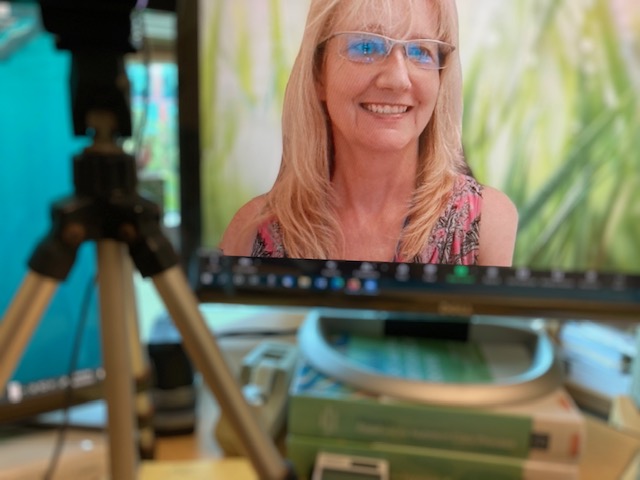
“The feedback is incredible and it’s the best and the most fulfilling class I’ve ever taught.”
What are some of the challenges of teaching mindfulness as a university course on Zoom?
I was one of the first professors to create and teach an online course 15 years ago, but it’s a burden when it’s all your classes due to COVID. You can’t feel the pulse of the class. They stare at you like zombies. You crack jokes and no one cracks a smile. The students are tired and exhausted. I feel for them, but there’s only so much saline you can pump into the lifeless. Yet, they end the class with a symphony of thank you “Aunties,” and it pumps me up, makes me smile, and continue trekking on.
Do you feel that the COVID pandemic has increased the need for mindfulness skills training in university settings?
Yes. I grew up with not much life skill teachings. I had plenty of academic education, but real life lessons were left to chance and circumstance. I literally could have been killed, but made it through. Anyway, I think it’s terribly insufficient not to teach life skills; it’s literally akin to throwing someone overboard and telling them to swim. Well, I swam like hell, but wanted to make it easier for these emerging adults to have some rope to haul themselves onto shore. I didn’t want them to needlessly struggle and suffer as much as I did, and mindfulness is one of those tools that definitely helps us all during this time. I’m helping them in the way that I wish I would have been helped.
Do you have any quotes from your class that students particularly resonate with?
“It was only a sunny smile, and little it cost in the giving, but like morning light it scattered the night and made the day worth living. “
F. Scott Fitzgerald
Enjoy? Share with your friends
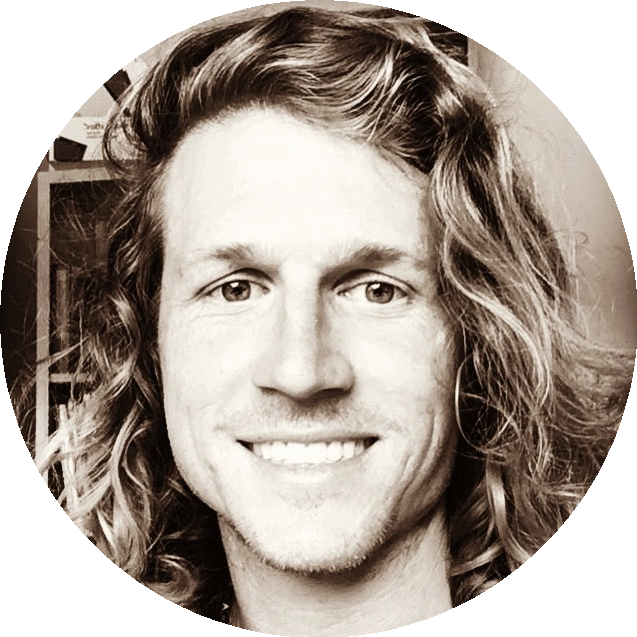
Michael Juberg
Michael is the Founder and Chief Editor of the Science of Mindfulness.
Related Posts
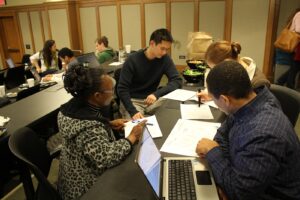
African American Mindfulness Researchers Make Vital Contributions
The growing recognition of transdisciplinarity’s powerful nature offers researchers valuable opportunities for collaboration

Moving Beyond the Headlines
Does the scientific content that we read always mean what it claims?

The Clark Unitive Effect: Bridging the ‘Valley of Death’ from Research to Practice
The growing recognition of transdisciplinarity’s powerful nature offers researchers valuable opportunities for collaboration

What is Mindfulness-based Resilience Training (MBRT)?
Also known as MBRT, this intervention helps first responders navigate their work more mindfully

Oppositional Cultural Practice®: OWN IT! FEEL IT! LIVE IT! LOVE IT!
Mindfulness practices like critical analysis can reveal the mental formations behind these tools.

Interview with Dr. Linda Carlson
Dr. Linda Carlson holds the Enbridge Research Chair in Psychosocial Oncology, is Full Professor in Psychosocial Oncology in the Department of Oncology, Cumming School of Medicine at the University of Calgary, and Adjunct Professor in the Department of Psychology.

Mediating Mindfulness-Based Interventions with Virtual Reality in Non-Clinical Populations: The State-of-the-Art (Failla et al., 2022)
By providing an immersive, engrossing, and controlled visual and auditory experience in which participants can practice mindfulness techniques, Virtual Reality (VR) systems can create immersive, ecologically valid, first-person experiences that can even tap into physiological reactions that align with real-world experiences.

Trait Mindfulness and Relationship Satisfaction: The Role of Forgiveness Among Couples (Roberts et al., 2020)
The researchers were interested in understanding if forgiveness acts as a mechanism by which mindfulness relates to relationship satisfaction. They speculated that being mindful would allow individuals to be aware of their own and their partners’ emotions in a non-judgmental and non-reactive way. The increased awareness would make people more forgiving of partner transgressions, thereby enhancing relationship satisfaction.

Exploring the Nexus between Mindfulness, Gratitude and Wellbeing Among Youth with the Mediating Role of Hopefulness: A South Asian Perspective (Ali et al., 2022)
Emerging studies are highlighting the effectiveness of mindfulness, gratitude and hopefulness as positive psychological tools in helping people cope with anxiety and stress. These practices have also been considered beneficial in enhancing psychological health and well-being.
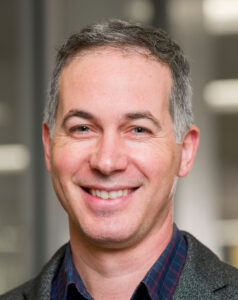
Interview with Dr. Sahib Khalsa
Dr. Khalsa is currently the Director of Clinical Operations at the Laureate Institute for Brain Research.
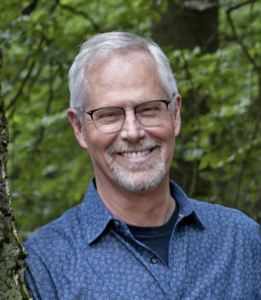
Interview with Dr. Christopher Germer
“…when mindfulness and self-compassion are in full bloom, they are nearly identical in a moment of suffering.”

What is Mindful Self-Compassion (MSC)?
Also known as MSC, this intervention teaches people to care for themselves as much as they care for others.
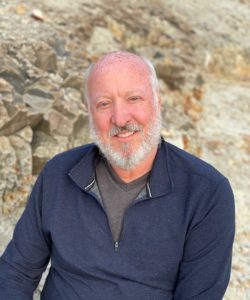
Interview with Dr. Steven Hickman
Self-compassion actually allows us to sustain our compassion for others because we’re being compassionate to ourselves as well.
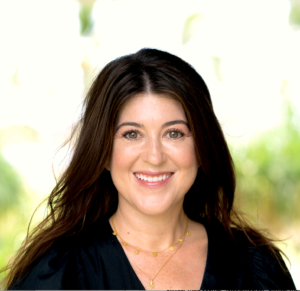
Interview with Dr. Erin Bantum
My work, over the past fifteen years has had a core theme of social support running through it, and I’d like to create an online mindfulness meditation intervention that includes a group component, such that people who have experienced cancer can meet and practice mindfulness meditation together.
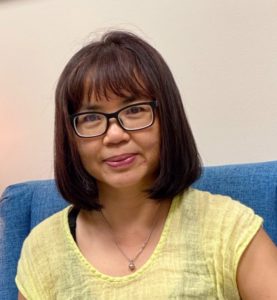
Interview with Dr. Thao Le
Ultimately, my intention is for it to be a service space to help students, faculty, staff, or anyone from the community to connect with themselves. Don’t we all need to pause?
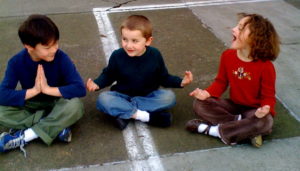
The challenges of bringing mindfulness into schools
After nearly three decades, a ban prohibiting public schools to offer yoga as an elective for grades K-12 has been overturned in Alabama.
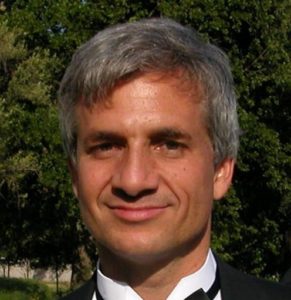
Interview with Dr. Philippe Goldin
Philippe Goldin, Ph.D. is an Associate Professor at UC Davis and leads the Clinically Applied Affective Neuroscience Laboratory.
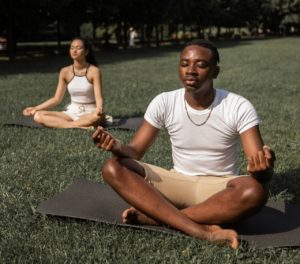
What is Mindfulness-Based Stress Reduction (MBSR)?
Mindfulness-based stress reduction, also known as MBSR, is an 8-week evidence-based group program that teaches participants how to cope with their pain and stress using mindfulness meditation and Hatha yoga techniques.

What is Mindfulness-Based Cognitive Therapy (MBCT)?
Mindfulness-based cognitive therapy, also known as MBCT, is a group-based treatment program … developed to prevent relapse in clinical populations with recurrent major depressive disorder (MDD).
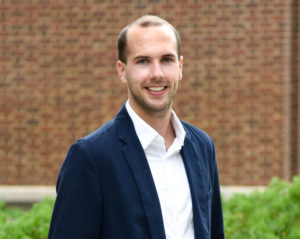
Interview with Blake Colaianne
Blake Colaianne is a former Earth science teacher turned contemplative researcher. He is currently a Ph.D. Candidate in Human Development and Family Studies at Penn State University. His research focuses on supporting adolescent development using both a culture of belonging in high schools and prevention and promotion programs that teach mindfulness and compassion skills.

What is Mindfulness-Based Stress Reduction for Teens (MBSR-T)?
The MBSR-T program (also known as the Stressed Teens program) was created in 2004 by Gina M. Biegel, MA, LMFT

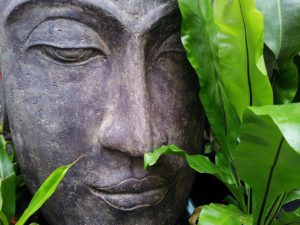
What is Mindfulness?
Rather than proposing a single definition, mindfulness might be better understood in relation to the phenomenology of the various contemplative traditions and practices that intend to develop mindfulness.
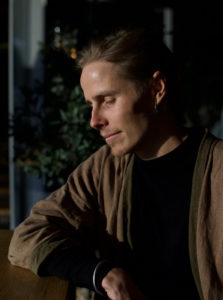
What is the Present Moment? Some Warnings about Hanging out in it, and a New Scientific Theory of Meditation
Ruben Laukkonen is a cognitive neuroscientist at the VU University of Amsterdam. His research focuses on sudden insight experiences and the effects of intensive meditation on the mind and brain. Using a combination of neuroimaging, machine learning, and neuro-phenomenology, Ruben is investigating some of the most rare states of consciousness accessible to human beings. He has published articles in leading journals, given talks at prestigious conferences, and has written on topics that range from artificial intelligence to psychedelics. Ruben has an eclectic contemplative background, including different meditation traditions such as Zen, Advaita, and Theravada.
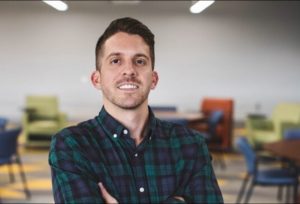
Interview with Michael Tumminia
Michael J. Tumminia is an avid meditator, researcher, and runner. He is currently a 3rd Year Applied Developmental Psychology PhD candidate at the University of Pittsburgh.

Your Brain is also Part of Your Body: Contextual and Contemplative Approaches in Physical Illness
Despite significant advances in the field of psychology due to increased research … the usual care of people with chronic medical conditions still often neglects the psychological issues associated with the physical dimension of the disease.
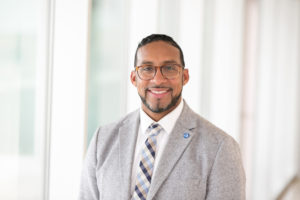
Interview with Dr. Juan Rios
“Whether you call it liberation, theology, transformative justice, mindfulness- we cannot separate those components of practice, all of those things are integrated. Integration brings peace, and peace within is key to embracing the other.”
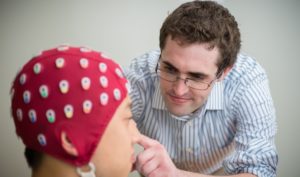
An electrophysiological investigation on the emotion regulatory mechanisms of brief open monitoring meditation in novice non-meditators (Lin et al., 2020)
Despite growing knowledge that mindfulness meditation can enhance emotional wellbeing, very little is known about how it all works. How exactly does the act of meditation help us deal with the emotional rollercoaster of everyday life? Is mindfulness training actually “transferrable” to real world situations? What’s going on in the brain? Can we even measure it?
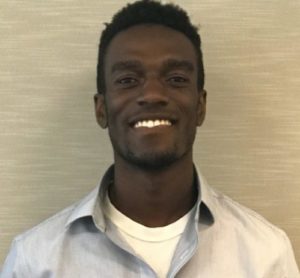
Interview with Grant Jones
Grant Jones (he/him) is an artist, contemplative, researcher, and activist. Currently, he is a 3rd Year Clinical Psychology PhD candidate at Harvard University and Co-Founder of The Black Lotus Collective.
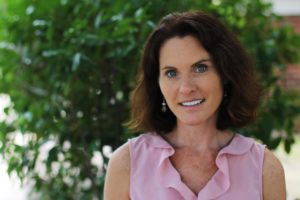
The Power of Their Own Breath
“We focus on concentration,” Jones says. “So rather than sharpening your focus, which is what happens when you get anxious, the goal is to relax your focus.” The ability to utilize your breath to calm your nervous system is the first step to teaching mindfulness.

Self-compassion, quiet self, and the brain (Liu et al., 2020)
How does self-compassion protect depressed adolescents? Quieting the self may be the key.

When Less is More: Mindfulness Predicts Adaptive Affective Responding to Rejection via Reduced Prefrontal Recruitment (Martelli et al., 2018)
A study led by Alexandra Martelli investigated whether more mindful individuals (based on self-report measure scores) would respond to social rejection with less distress and if certain neurological mechanisms in the brain’s prefrontal cortex can potentially explain the role of mindfulness in reduced social distress.

Brief mindfulness session improves mood and increases salivary oxytocin in psychology students (Bellosta-Batalla et al., 2020)
A research team from Valencia, Spain recently investigated the effects of a brief mindfulness-based intervention on both mood and biological markers on a sample of health professional students.

Neurophysiological and behavioural markers of compassion (Kim et al., 2020)
A new study by Kim and colleagues explored how compassion-based training can affect two self-regulatory styles and its relationship to neural, physiological, and behavioral responses.

Interview with Dr. Ilana Nankin – Breathe For Change
Dr. Ilana Nankin—the Founder & CEO of Breathe For Change—is an award-winning entrepreneur, teacher educator, and former San Francisco pre-k teacher committed to using wellness as a vehicle for healing and social change.
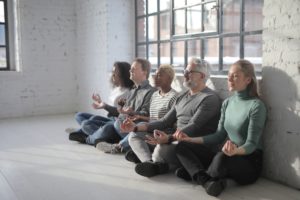
Yoga and Mindfulness as a Tool for Influencing Affectivity, Anxiety, Mental Health, and Stress among Healthcare Workers: Results of a Single-Arm Clinical Trial (Torre et al., 2020)
Torre and colleagues recruited 70 HCWs from two hospitals in Rome, Italy for a 4-week course in yoga and mindfulness.

Mindfulness Buffers the Impact of COVID-19 Outbreak Information on Sleep Duration (Zheng et al., 2020)
A team of researchers based in the perceived epicenter of the virus, Wuhan, China, recently tested whether a brief mindfulness intervention delivered through an app could be effective for reducing anxiety and protecting nightly sleep during the unfolding pandemic.

Intrapsychic Correlates of Professional Quality of Life: Mindfulness, Empathy, and Emotional Separation. (Thomas & Otis, 2010).
Mindfulness practices can enhance a therapist’s ability to intentionally and flexibly regulate attention as well as emotional reactivity which has been demonstrated to influence burnout.
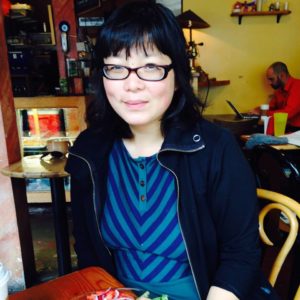
Interview with Dr. Helen Weng
Dr. Helen Weng is a clinical psychologist and neuroscientist who originally joined the Osher Center for Integrative Medicine in 2014 as a postdoctoral scholar in the Training in Research in Integrative Medicine (TRIM) fellowship. She is developing new ways to quantify meditation skills using functional magnetic resonance imaging (fMRI) and machine learning to identify mental states of body awareness during meditation.

Physician Anxiety and Burnout: Symptom Correlates and a Prospective Pilot Study of App-Delivered Mindfulness Training (Roy et al., 2020)
A new study investigated whether a brief mindfulness training designed to reduce physician burnout could be delivered through a smartphone app.
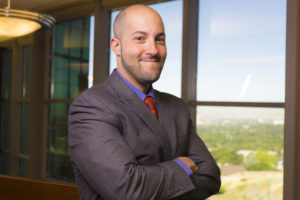
Interview with Dr. Eric Garland
Dr. Eric Garland, PhD, LCSW is Presidential Scholar, Associate Dean for Research, and Professor in the University of Utah College of Social Work, Director of the Center on Mindfulness and Integrative Health Intervention Development (C-MIIND), and Associate Director of Integrative Medicine in Supportive Oncology and Survivorship at the Huntsman Cancer Institute.
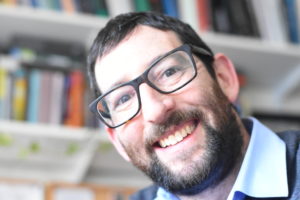
Interview with Dr. David Vago
David Vago is Research Director of the Osher Center for Integrative Medicine at Vanderbilt University Medical Center.
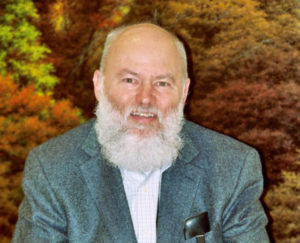
Interview with Dr. Jeff Brantley
Jeffrey Brantley, MD, is one of the founding faculty members of Duke Integrative Medicine, where he started the Mindfulness-Based Stress Reduction program in 1998.

Role of Yoga and Mindfulness in Severe Mental Illnesses: A Narrative Review (Sathyanarayan et al., 2019)
The current study reviewed the wider scientific literature for the role of yoga and mindfulness interventions in the treatment of severe mental illness.

A Randomized Controlled Trial Examining the Effect of Mindfulness Meditation on Working Memory Capacity in Adolescents (Quach et al., 2015)
The amount of research involving mindfulness interventions has grown exponentially; however, only in the last decade has mindfulness research involving adolescents rapidly increased.
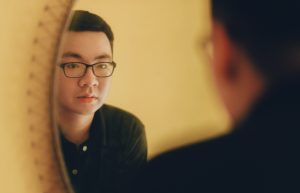
The Differential Moderating Roles of Self-Compassion and Mindfulness in Self-Stigma and Well-Being Among People Living with Mental Illness or HIV (Yang et al., 2016)
Mindfulness and self-compassion are theorized to disrupt the maladaptive repetition of negative thoughts and emotions for patients with chronic or mental illnesses, who are particularly susceptible to psychosocial distress.

The Emerging Trend of Mindfulness in Education
According to the Association for Mindfulness in Education, mindfulness can increase students’ emotional regulation, social skills, self-esteem, and organizational capacities.

Neural Stress Reactivity Relates to Smoking Outcomes and Differentiates Between Mindfulness and Cognitive Behavioral Treatment (Kober et al., 2016)
There is promising evidence that 70% of smokers would like to quit but less than 5% of unassisted attempts at quitting are actually successful.
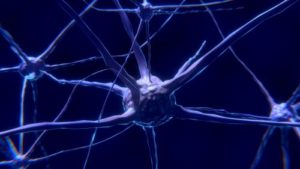
Mindfulness-Based Relapse Prevention for Stimulant Dependent Adults: A Pilot Randomized Clinical Trial (Glasner et al., 2016)
In a recent pilot study by Suzette Glasner, Ph.D. and her team at the Integrated Substance Abuse Programs at the David Geffen School of Medicine at UCLA, they evaluated the effects of Mindfulness-Based Relapse Prevention (MBRP) on reducing relapse susceptibility among stimulant-dependent adults receiving a contingency management (CM) intervention.

Long-term Mindfulness Training is Associated with Reliable Differences in Resting Respiration Rate (Wielgosz et al., 2016)
A major implication of the study suggests the distal effects of intensive retreat practice on respiration rates, a benefit not necessarily conferred by a brief, but full-day meditation session.

Examination of Broad Symptom Improvement Resulting From Mindfulness-Based Stress Reduction in Breast Cancer Survivors: A Randomized Controlled Trial (Lengacher et al., 2016)
Researchers are exploring mindfulness-based interventions as a long-term treatment options to address the multitude of symptoms after cancer has been treated.

Epigenetic Clock Analysis in Long-term Meditators (Chaix et al., 2017)
While the scientific study of mindfulness has exponentially increased over the past few decades, only recently has the scientific community focused on the effects of meditation training on biological aging.